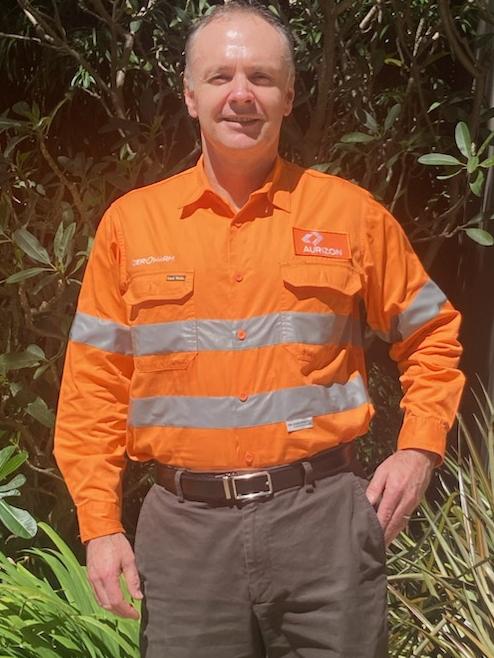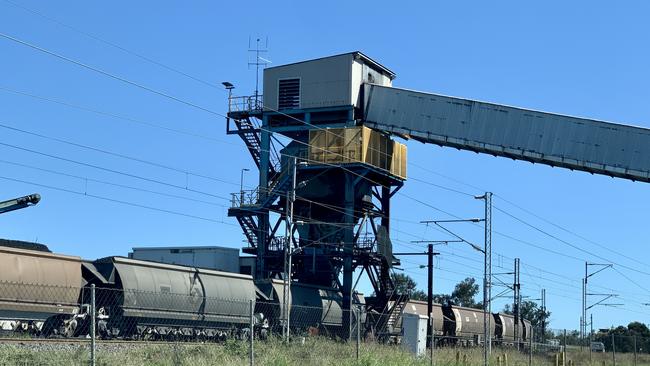Aurizon profit drops as wet weather hit coal haulage
Rail giant Aurizon is banking on new ways to carry cargo including investments in a freight ‘land bridge’ from the Port of Darwin to offset reliance on coal haulage.

Rail giant Aurizon is banking on new ways to carry cargo including investments in a freight “land bridge” from the Port of Darwin to offset reliance on coal haulage.
Brisbane-based Aurizon reported a 37 per cent drop in profit to $324m in the year to June 30 as its coal business was hit by wet weather. Revenue climbed 14 per cent to $3.5bn.
The company said earnings from its coal business dropped 16 per cent to $455m as wet weather and mine production issues hit the amount hauled to major ports.
Aurizon chief executive Andrew Harding said the company had faced a challenging operating environment in 2023 with prolonged wet weather significantly impacting volumes and earnings. Haulage of grains and iron ore had remained strong.
Mr Harding said an uptick in coal and other commodities carried on its network in the June quarter gave confidence in an improved outlook for 2024. Aurizon shares dropped 2.8 per cent to $3.60.

Mr Harding anticipated increased bulk and containerised freight business as investments in new rolling stock, terminal and port equipment started to pay off.
Aurizon is seeking to diversify from coal and compete against shipping after purchasing One Rail Australia, the operator of the Tarcoola to Darwin railway, for $1.4bn in 2021. Aurizon says it can deliver a container from Shanghai to Melbourne quicker than traditional shipping via the Darwin rail link.
“We see major growth opportunities in central Australia, with 2500 kilometres of rail infrastructure and a line that runs directly into the Port of Darwin,” Mr Harding said. “We are investing in new cranes at the port to service customers through our portside terminal and the rail corridor has ample capacity to accommodate future growth.”
Aurizon has outlined ambitions to turn the Port of Darwin into the starting point of a “land bridge” to haul shipping containers from regional ports across northern Australia and attract shipping lines away from ports in capital cities.

“The One Rail acquisition has given us a truly national footprint and joined the dots from east to west,” said Mr Harding, who added Aurizon has signed several memorandums of understanding with companies interested in using the Darwin link.
Aurizon secured its largest ever non-coal contract with an 11-year agreement with Team Global Express (TGE) for national linehaul services. Team Global Express, formerly known as Toll Global Express, provides express parcel, freight delivery and domestic forwarding services in Australia, and transport and contract logistics services in New Zealand.
“With TGE as our cornerstone customer, we are now building additional volumes for our containerised freight business,” Mr Harding said.
“The track infrastructure we have in place and gives us the opportunity to develop land-bridging for Australian imports, through Darwin to southern capitals.”
Aurizon’s so-called “land bridge strategy” could more than double the company’s shipping container business by the end of the decade, reducing Aurizon’s reliance on coal haulage in Queensland and NSW.
Mr Harding added there were more than 250 projects for new-economy commodities in South Australia and the Northern Territory, in various stages of development, including copper, magnetite, phosphate and rare earths. Many of these projects sit adjacent to the rail corridor.
Moody’s Investors Service analyst Kenny Lo said Aurizon’s successful execution of its land-bridge strategy would remain a key credit consideration for the company over the next few years.
“Aurizon’s focus on diversifying its business portfolio into bulk is an important mitigant to its exposure to coal as ESG (Environmental, social, and corporate governance) considerations become increasingly more stringent,” Mr Lo said. Aurizon declared a final dividend of 8 cents per share, taking the full year dividend to 15 cents per share.







